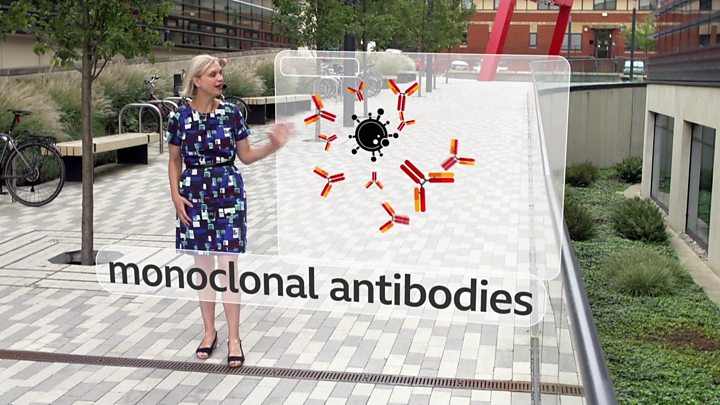A new antibody treatment is to be trialled on Covid-19 patients in UK hospitals.
Monoclonal antibodies, which are potent, laboratory-made antibodies, will be given to about 2,000 people to see if they are effective against coronavirus.
It forms part of the UK Recovery Trial, which found that a cheap steroid called dexamethasone could save lives.
The first patients will be given the new drugs in the coming weeks.
Prof Martin Landray from the University of Oxford, who is co-leading the Recovery Trial, said: “This is the first type of treatment that's targeted for this specific virus.
“There are lots of good reasons for thinking it might well be effective - stopping the virus from reproducing, stopping the virus from causing damage, improving survival for patients.
“We need to know, and the way to know is to do the trials that will tell us whether that hope turns into reality.”
What are monoclonal antibodies?
Antibodies could be described as the "warriors" of the immune system.
When coronavirus infects your body, antibodies attach to the spikes of the virus, blocking it from entering your cells.
But we produce many different types of antibodies - the most potent are called neutralising antibodies.
So scientists "sieve" through them to find the one that’s best at sticking to the spike.
The chosen antibody is multiplied in the lab, and produced in huge quantities.
This is then given to patients, immediately boosting their immune response.

